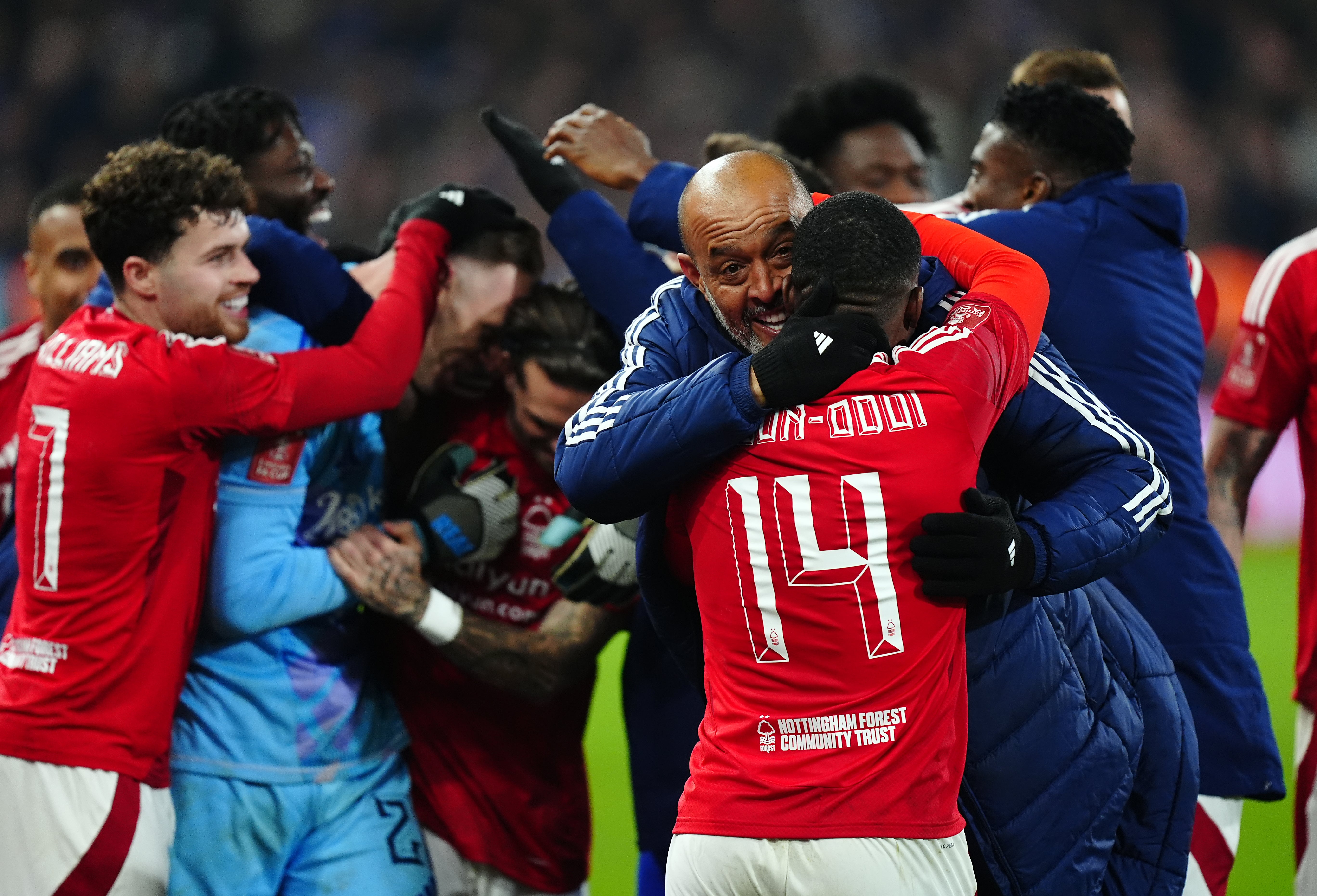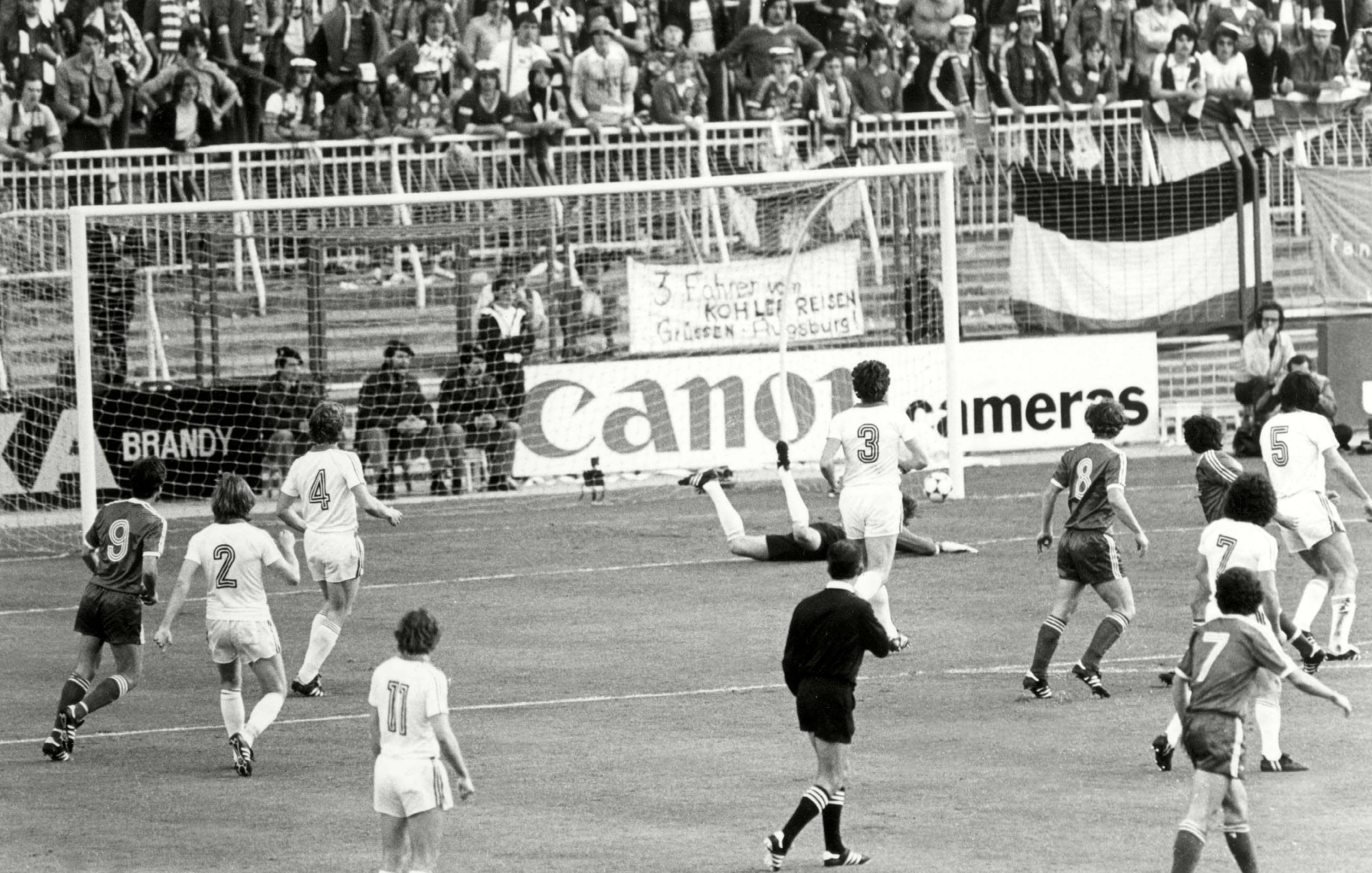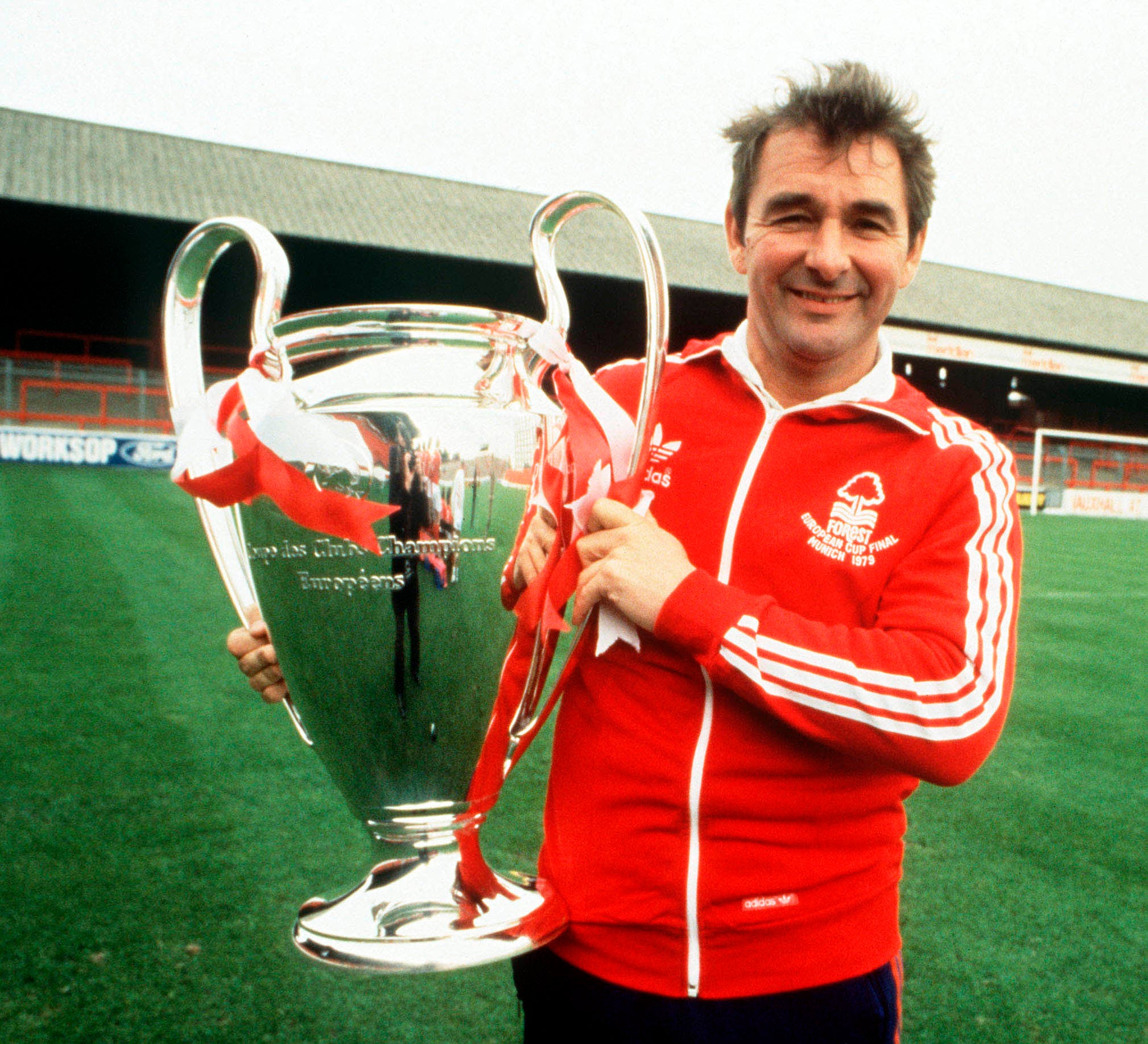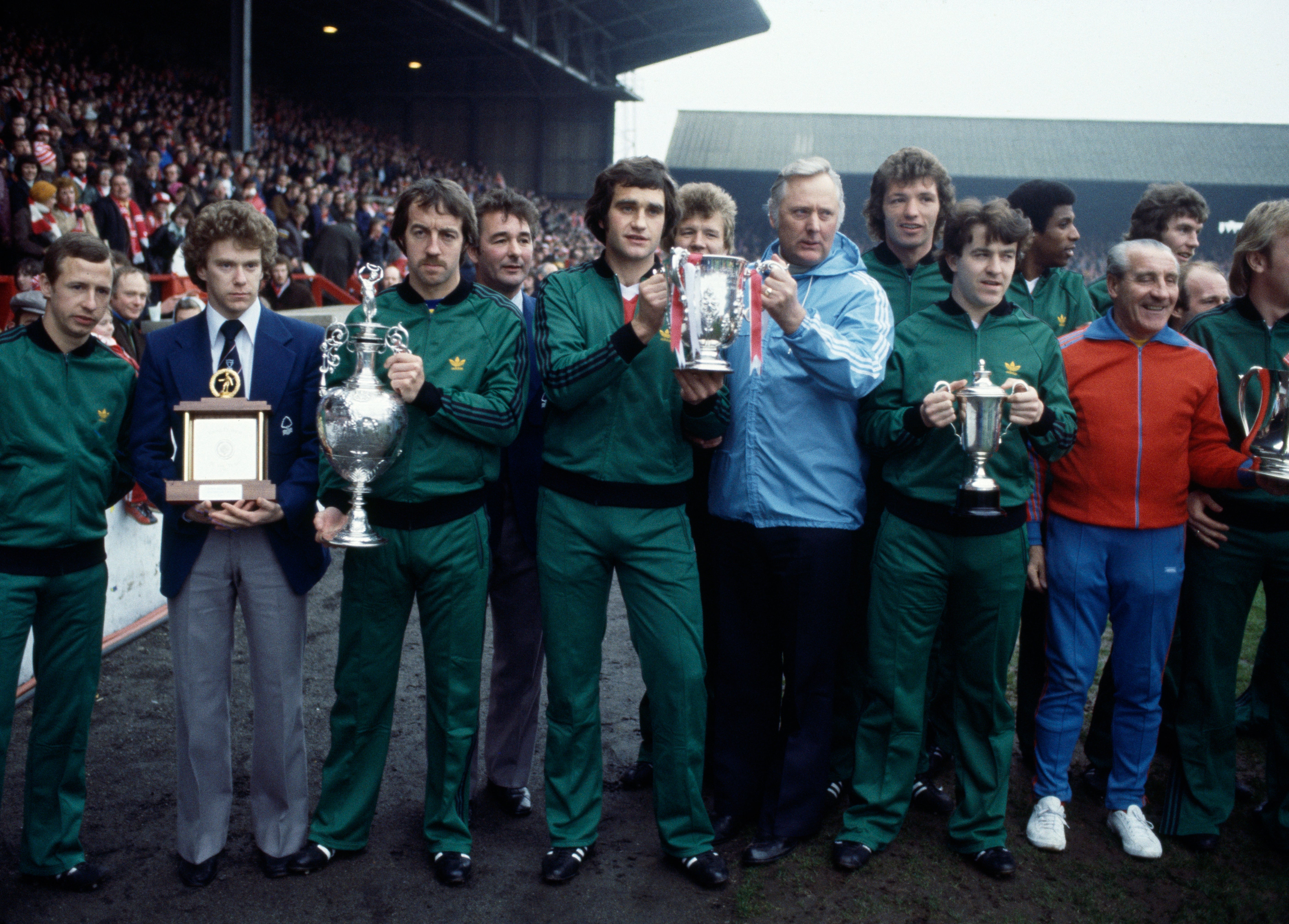FA Cup: Why every neutral will be backing Nottingham Forest at Wembley today
It may be because of the romance of Robin Hood, or the glory days of Brian Clough, but as the scrappy underdogs face Man City at Wembley this weekend, lifelong (London-born) fan Jonathan Margolis reflects on the love he and many others have for his team

On Sunday at 4.30pm, I will be among 90,000 people at Wembley Stadium to see my football team, Nottingham Forest, play – and possibly even beat – the mighty, moneyed Manchester City in an FA Cup semi-final. “We” – I don’t actually play for Forest, you understand – are also currently fourth in the Premiership, which means we may soon be in the European Champions’ League, playing the likes of Real Madrid, Paris Saint-Germain and Bayern Munich.
Non-football people, please don’t stop reading, because this is not really a piece about football at all, but about the way a provincial population can be galvanised and real elation can be had by thousands who have no “skin in the game” other than fun, pride and romance.
Romance not just because Nottingham, my dearly loved adopted city (even though I haven’t lived there since I was a student) is sopping with redolent cultural touchpoints – Robin Hood, Lord Byron, DH Lawrence and more. What’s happening to its football this season is romantic because, like so much of Nottingham’s story, it’s also about the unlikely triumph of the underdog.
Let me illustrate how improbable our men’s team’s sudden success is. (Our women, I should say, are doing even better – top of their league and unbeaten). The odds eight months ago on what is now unfolding were between 250 and 500 to 1 – making it between twice and 20 times less likely than the official chances the bookmakers offer on the discovery of sentient alien life by the end of 2025.
Fifty years ago, after the brilliant Brian Clough was installed as manager, we became very successful for a short while. But you have to be 60 to remember those times, and football was very different then. Wealthy foreign owners and talented players coming from every which where to earn millions a year were unknown. Our boys were mostly local, had a beer before a game, and included an electrician and a carpet fitter.
As money and glamour overtook the sport, Forest were chronic losers for decades. Yet suddenly, and against all expectations, we have become utterly, mesmerically brilliant, acclaimed and admired the world over.
We are loved, too. In our distant glory days, opposition fans sang “We hate Nottingham Forest” to the tune of “Land of Hope and Glory”. Today, the pundits who were once unanimous that we would be relegated fall over themselves to say how fantastic we are, and even fans of other teams tell us how much they enjoy watching Forest and wish us well.
Perhaps it’s the Robin Hood connection, or the peculiarly English name, but Nottingham Forest – a reference, of course, to Sherwood Forest – is loved by the football cognoscenti abroad too, many of whom are barely aware we have been in the doldrums for decades.

In Europe, from our appearances there in the 1980s, there is still real affection, and to this day, in Milan the Nottingham Forest Cocktail Bar, which is distinguished, I am told, by having no reference beyond the name to our team. Maybe it has something to do with the club’s colour, a shade of red chosen a little randomly at the club’s founding in 1865 to honour Garibaldi, the hero of Italian unification.
Our arcane attraction also stretches across the Atlantic. As I work partly in New York, I watch Forest games live there in a Forest supporting bar, which attracts many devout fans, some expats, but many Americans. A midday kickoff can mean a 7am start, but it still gets crowded. There is no equivalent venue I know of in New York dedicated to any other British “soccer” team.
The essence of Nottingham is that it’s quite idiosyncratic; nobody quite gets it, not even the students who these days come in large numbers from all over the world. Nottingham is not northern, not typically midlands, and definitely not southern.
It’s a bit rough – always has been – but also rather cultured and elegant, with some marvellous Georgian and earlier architecture and two pubs a thousand years old each.

When a notable food critic visited recently to try a much lauded new Japanese restaurant, he described the city as “a ravaged place of boarded-up buildings and disused churches”. I truly can’t imagine where he was referring to. Perhaps it was nearby Derby?
For Nottingham Forest fans, our team’s transformation has shone like honeyed sunshine over everything. Whatever else is falling apart, there’s always the next match to be excited about. And, lord, it’s exciting.
Nottingham people are not renowned for being the most passionate, but the atmosphere at the club’s somewhat decrepit stadium on the River Trent is scorching, the noise level such that my smartwatch regularly warns me that the decibel level is officially dangerous.
How this has all happened is frankly baffling. Our owner, Evangelos Marinakis, is an eccentric, corpulent Greek shipping billionaire, currently facing trial in Greece on charges he says are trumped up. Most of the club’s hierarchy is also in Greece.

The owner has, until very recently, been considered in Nottingham only marginally less useless than the previous proprietor, a Kuwaiti air conditioning mogul who made the players wear shirts advertising his company and whose products are only available in the Gulf. We now, obviously, love Evangelos Marinakis as one of our own.
Then there’s our Portuguese-São Toméan manager, a gentle equestrian enthusiast who bears the not unflorid name Nuno Herlander Simões Espírito Santo.
Nuno, as we know him and adore him by the banks of the Trent, is a former goalkeeper of moderate repute. Before us, he managed a team in Saudi Arabia, then for a bleak four months, Tottenham Hotspur. Nuno is now regarded widely as a genius, and we love him too as one of our own.
The players, like the management, would equally have been considered a tad exotic when Nottingham was home (well, sort of) to Robin Hood and our assorted historical all-stars.

In our first team of merry men, we have two from Nottingham, four Brazilians, two Nigerians, two from the Ivory Coast, two Welshmen, a Belgian, a German, a Spaniard, an Argentinian, a New Zealander, a German, a Serbian, a Portuguese, a Swede and a Paraguayan.
Such a multinational squad would have been inconceivable as late as the 1970s, when almost the only foreign restaurants in Nottingham were Italian and the local tastemaker, Paul Smith, opened his first menswear shop in the city’s then embryonic artisan area, the still rather lovely Lace Market.
But I suspect it’s the Nottingham-ness of Nottingham which accounts for the sheer joy our team’s renaissance has caused in what has always felt to me like a slightly glorified country town. The spirit is possibly similar to the Geordiness of Newcastle, where the scenes of joy when they won a pretty minor cup the other day reminded me of how we might be if things get even bigger.
So, as we face Manchester City on Sunday, remember that those of us in Garibaldi red feel we’re from a bit of an outpost. And also that the idea very much prevails for us of the little guy for the ages, with his quiver full of arrows and sights on the privileged and entitled.



Join our commenting forum
Join thought-provoking conversations, follow other Independent readers and see their replies
Comments